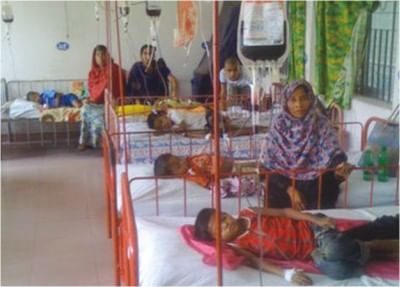Awareness and screening: keys to combat Thalassaemia

Patients at Thalassaemia ward in Dhaka Shishu Hospital
Thalassaemia is a genetic blood disorder that affects haemoglobin (Hb) — the oxygen-carrying protein in red blood cells by early destruction. In order to keep the Hb in functional level, children with thalassaemia require blood transfusions almost at regular basis. It is indeed a lifelong battle to survive. However, with awareness and screening for thalassaemia before marriage, we can prevent the fatal and painful disease.
In Bangladesh, about 7 to 8 thousand children are born with thalassaemia and increasing the burden of the disease every year. The carrier status of thalassaemia in our population is about 10% which means there are about fifteen million.
Thalassaemia is a preventable disease. People should be aware of the fact that a child suffers from thalassaemia when both parents are carrier of the disease. Population screening is needed to find out the carriers and it is an important pre-requisite for preventing the births of thalassaemic children.
In many countries screening is performed among the school and college students. Screening of the eligible couples should be done before marriage. Some countries including Iran, Saudi Arabia, Palestinian Territories and Cyprus have law that premarital screening for Hb disorders is mandatory for all couples before they are given approval to get married.
Screening can also be done on married couples of either male or female. If one of them is a carrier then his/her partner must be tested and if positive they should be sent for genetic counselling. The information has to be given to the couple and the choice is with them to have a child or not as there is 25% chance of having a thalassaemic child if both are carriers.
Prevention of births of thalassaemic children is more cost effective than treating them. We need to consider prevention of thalassaemia as a priority. Otherwise there will be a significant number of thalassaemic patients putting great strain in our already constraint healthcare.

 For all latest news, follow The Daily Star's Google News channel.
For all latest news, follow The Daily Star's Google News channel. 



Comments